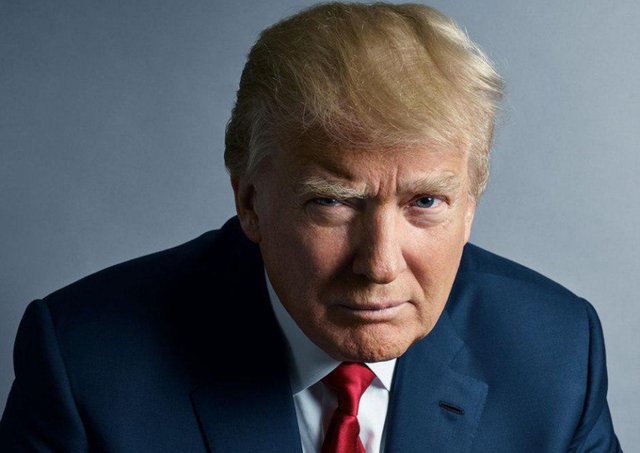Year in power. What Ukraine needs to understand about the presidency of Donald Trump

original source http://www.azov.press/ru/rik-pri-vladi-scho-ukraini-potribno-rozumiti-pro-prezidentstvo-donal-da-trampa
January 20 last year, the newly elected President of the United States, Donald Trump, took office. This event left few people indifferent. The election of Trump caused extremely polar assessments. For some, it was the dawn of a new era. For others - rehearsal of the end of the world. How did Trump change America and how does America change the world today? Did the hopes of some and the fears of others were justified? Let's try to answer these questions without emotion.
The first thing to note is that the US has returned to the role of a strong and strong-willed player. "Hawks" again in the game. Changing tactics, and sometimes strategies, had a number of manifestations: from pressure against the North Korea and tougher presence in the Middle East to confrontation with "Old Europe".
One of the changes was the transition of Washington to expressive anti-Russian positions. Even during the election campaign, Trump criticized Obama's unforgivable softness. The lack of will of the president-leftist led to the fact that Putin violated the status quo in the East of Europe. Becoming president, Trump can not rewind the time back and somehow correct Obama's mistakes. However, he made a lot of efforts to not allow Russia to go even further.
In fact, the election of Trump finally buried the "policy of reloading the relationship," which was launched in 2009 by then-Secretary of State Hillary Clinton. For the United States, Russia is again one of the main opponents. The policy of sanctions against Russia has taken on sharp forms. The United States became interested in building a real military and political shield against Russia in Central and Eastern Europe. Whether the current Ukrainian government is using these positive changes is another matter. We'll look at it at the end of the article.
Another important aspect of Trump's foreign policy is confrontation with European globalists. Trump entered into a confrontation with the German-French core of the European Union, which advocates an even greater centralization of this structure, a suicidal policy towards refugees, and pursues a policy of connivance with Russian aggression (for example, Germany and France jointly protested against new anti-Russian sanctions. against the Eastern European doctrines of NATO).
Criticizing Merkel and her French colleagues, Trump made a bet on Central Europe. The seriousness of this bet was shown by the visit of the American President to Poland last summer. The visit took place in the context of the summit of the countries of the Mediterranean. Thus, Trump showed that this geopolitical initiative is very important for him. Attention is drawn to the rhetoric of Trump's speech before the Poles: the American president made it known that the geopolitical processes in Central Europe are of interest not only from a pragmatic point of view, but also from the point of view of protecting real European values. One of the features of Trump's foreign policy can be called respect for the strength and integrity of both allies and opponents. For example, the United States with the election of Trump increased the pressure against Iran (as far as this policy is justified - another issue). But the firmness of the positions of the Iranian authorities forced America to retreat and agree not to renew sanctions against Iran.
Summing up, let's look in the light of what was said above on the behavior of the current Ukrainian authorities. Poroshenko did not make enough use of the fact that US policy became more anti-Russian. Trump returned to power politics and is ready to cooperate with strong players. Kiev force was not demonstrated. So, the US, when it comes to the issue of the Russian-Ukrainian confrontation, will act based on its own interests, which do not always coincide with the Ukrainian ones. To secure reliable US support, Ukraine must demonstrate that it has clear principles and is ready to consistently implement these principles. Here there is a certain paradox in order to have the US in its allies, it is first of all necessary to rely on one's own forces and in some cases to act against US policy. But it is unlikely that Poroshenko will decide on such a policy.
Petr Klimchuk